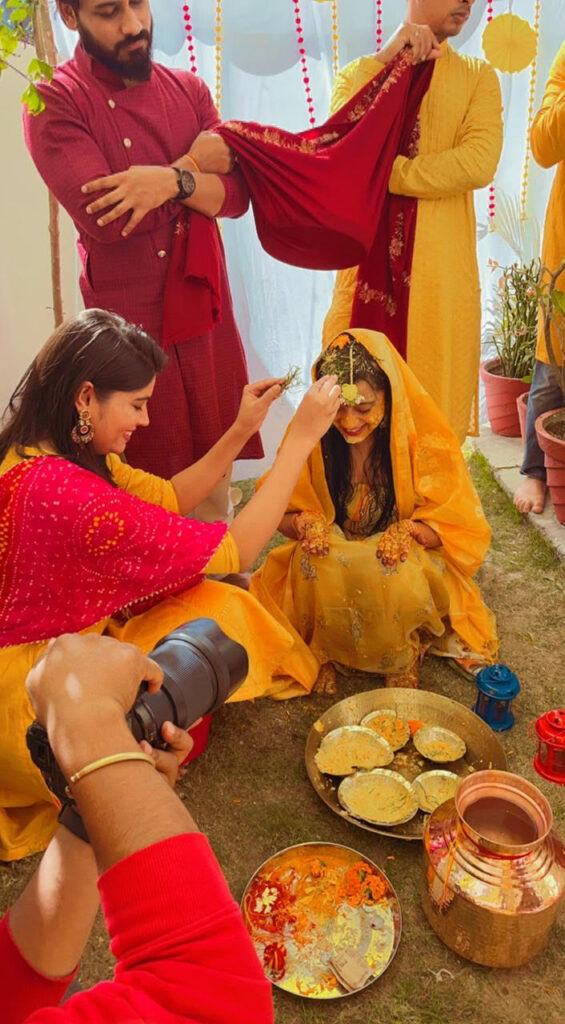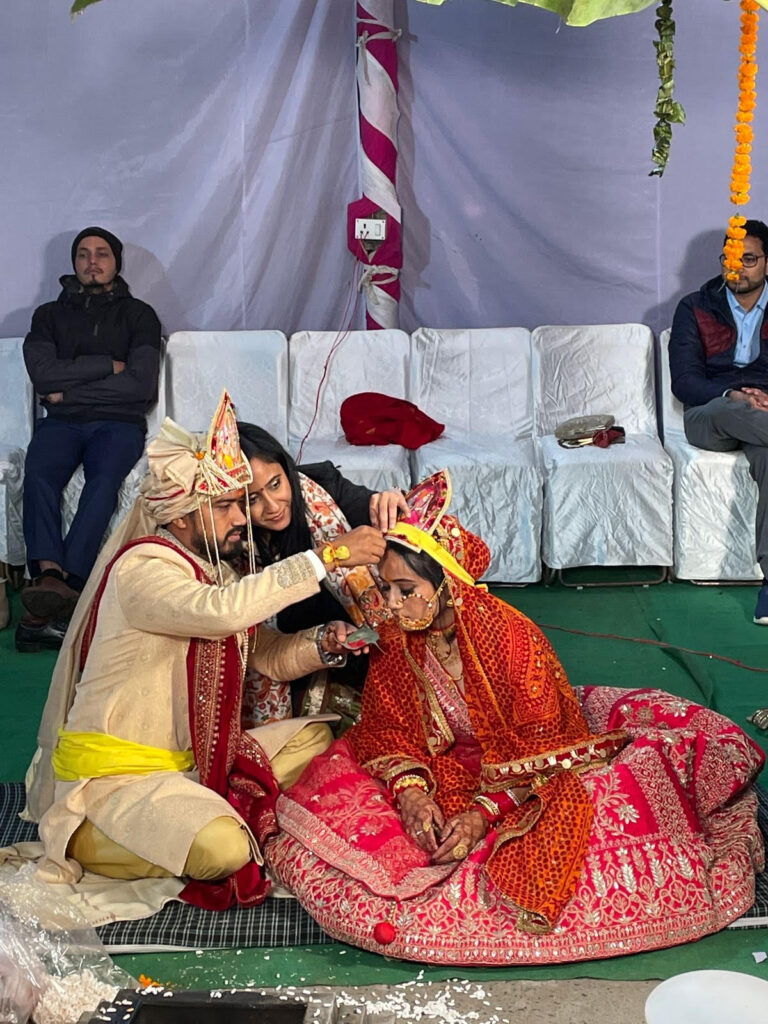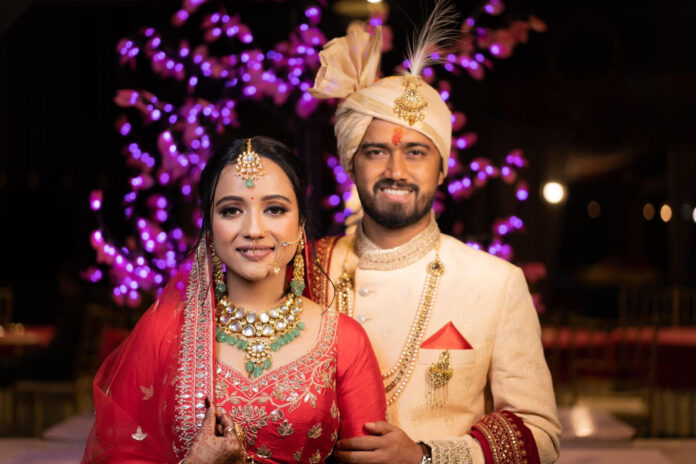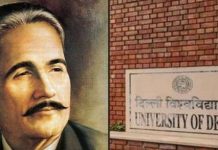By Deeksha Sharma
The coronavirus may have mutated into several versions Delta, Omicron and even Demicron bringing illness and grief to many, but, surprisingly, weddings have been keeping pace and sometimes repairing the damage wreaked by the virus. People are tying the knot as if there is no tomorrow. Call it the fear factor, or Covid fatigue, two years of this pandemic have forced weddings to go virtual, private and more frequent.
As a state-limited guest list ensures no overshooting of the budget or unreasonable demands, such as dowry, the almost manic rush to get married is visible. If you have friends of ‘marriageable age’ and they are on Instagram, every time you refresh the feed, someone you know is married. That’s how it is.
But did you wonder why the increase in weddings now? We, at Views on News, asked a few couples, who recently tied the knot, or are set to get hitched in the coming weeks, about why they chose to get married amid the pandemic.
Here are some of the observations we picked up:
Tanya (26), of Gurugram, Haryana.
“March 2020 se pehle sab acha chal raha tha, laga bhi nahi tha ke abhi itni jaldi shadi karni hai. Lockdown jaisa shabd pehli baar suna tha, aur jab hua to laga ke ab companionship chahiye, ye loneliness bahut bekar cheez hoti hai; it makes you feel sick to the stomach, gives you unwanted thoughts. Toh tab laga ke mujhe shadi kar leni chahiye to the one I love (Before March 2020, I never thought of getting married so early. Till then I hadn’t heard the word lockdown; when it happened, I realised that I needed companionship, because this loneliness is the worst feeling in the world; it makes you sick to the stomach and that gives you unwanted thoughts. At that very moment, I thought I should get married to the one I love).”
As the Covid-19 second wave ripped through India, many were left gasping for oxygen. Pyres added to the particulate matter in the already polluted Delhi air, images like the one captured for eternity by the late Danish Siddiqui were superimposed on minds. Some, who were set to marry in May 2021, postponed or cancelled their weddings as they dealt with grief and trauma.
Death of a dream
An IT company employee, who chose to be anonymous, was set to marry his love from his schooldays on May 3, 2021. He said everything was ready, the shopping was done, the venue was set, it was just like as they wanted it to be. “The trial pictures of my other half trying her gorgeous lehenga still gives me butterflies in the stomach.”
“All I ever imagined for both of us was sharing household chores, her constant rants about work, our cute dates, and sharing the rest of our lives together, but what I never imagined was seeing her gasping for oxygen, and the idea that we would not be able to live together. She died on April 28, 2021, in the second wave.”
As the Covid-19 second wave ripped through India, many were left gasping for oxygen. Pyres added to the particulate matter in the already polluted Delhi air, images like the one captured for eternity by the late Danish Siddiqui were superimposed on minds.
As the Omicron numbers grow in the country, soon-to-be-married couples, caterers, florists, tent owners are crossing their fingers and tightening their belts and masks.
Deeksha’s (27) decision
Deeksha, a 27-year-old woman who lives in Noida, is set to tie the knot next year in February 2022. She said her whole family caught the coronavirus in the second wave, and when the cases started declining, she agreed with her parents that she get married ASAP.
She said her family started looking for the groom in October and within a few days, they found the right match. “Everyone told us it’s a Ram milai jodi (made for each other). Our wedding dates are finalised, we will get married in February, but if the situation worsens due to Omicron, we will just tie the knot in a temple as we don’t know, what’s ahead. We don’t want to risk the lives of our loved ones; we recently lost some of our closest relatives, and we don’t want to see that happening again,” said the accounting professional.
Pooja’s (28) option
Twenty-eight-year-old Pooja Negi has this to say. “The original wedding date was May 4, 2021, which got moved to November 20, 2021, with a sudden spike in cases during the second wave of coronavirus, due to this reason we shifted the wedding to November. Vikram and I have dated each other for 12 years or more, and in 2020, we decided to introduce each other to our parents, everything was going well, and we started our wedding preparation in the latter half of 2020.


We were excited to get hitched, but just 10 days before our wedding, one of our relatives was found Covid positive and was hospitalised, oxygen was needed for him, and that created a worrisome situation for us. After that, we decided to postpone our wedding, and even while doing that we thought even if this time something happens, we would just do a private wedding in which only the families will be invited,” says Pooja.
Pooja’s sister Jaya told us as the wedding got postponed, the outfits and everything were all ready, so once every month, Pooja used to try her wedding lehenga, and would wait for the D-day. However, finally, the D-day came, and we got married, without any constraint, because in the end love surely wins, said Pooja.
The other side of love
Love reigned for Pooja and her husband. But Lord Kuber is yet to give his blessings to those who make a living in weddings. Rocky, the owner of Rocky tent house in Bihar’s West Champaran, said he has been in the business for 20-25 years, and never in his life, had he seen such a thing. “Hum kheti-badi karne lage, ta ki apne ghar me sabka pet bhar sake (We started farming to feed the family),” said Rocky.


Rocky said migrants, who returned home in the first lockdown, vowed never to go back to the city as they faced trouble there, and would work as his help once the wedding season, around the corner, starts. But as soon as the lockdown lifted and the situation felt returning to normal the migrants moved back to the city. “Sabne hume apne haal pe chhod dia tha (everyone left us standing).”
Swarnlata, a Delhi make-up artist who runs a parlour, said in the pandemic she felt like quitting it all as she was not able to pay the rent for the parlour. With the surge in Omicron cases, she said that if the lockdown happens again, she would sell all her furniture and would start providing services at clients’ homes, as it has started to become impossible to keep the business viable. “Ab sab bhagwan bharose hi hai, jo hai ab bhagwan ke hath hi hai (now everything in is God’s hands),” she said.
Gajendra Bhandari, who runs a tent business in Dehradun, said in his 15-year run in the business, this pandemic has seen the worst years of his life. “Agar papa ki pension nahi hoti to pata nahi kaise hi ghar chal pata (if there wasn’t my father’s pension, then I don’t know how would my house would run),” said Bhandari.
He said that many migrants of Garhwal and Bijnor returned home and changed their jobs or just took up any job to feed their families. “Kuch log plumber ka kaam karne lage to kuch dukano me kaam karne lage, bas sab apna ghar chalana chahte (some started doing plumbing work, some started working in shops, all they wanted was to feed their families). But what came as a shock was the second wave in which we lost many people.”
Apart from this, Bhandari said he suffered losses in his business because things got costlier. From petrol prices to vegetables, everything is expensive, he said. “Earlier, cylinders cost us Rs 1,000 and now it is Rs 2,200 for us, whereas vegetables, cooking oil is also expensive,” he said in what is the familiar refrain all over the country against the government’s inability to arrest inflation running on turbo powered by fuel prices.


“Kabhi kabhi lagta hai, saans lena bhi mehanga pad jaaega, par hum ummid nahi chhod sakte, aur aage bas aur ummid rakhege ke shayad kuch acha ho (sometimes it feels like even breathing will become expensive, but we can’t lose hope, and we will keep hope for the future too that maybe something good is coming ahead for all of us).” That’s all the people have : Hope. And some snatched moments of joy with weddings as the year closes. As 2022 wends its way into our lives, hope, like the virus, is getting better at mutating





















